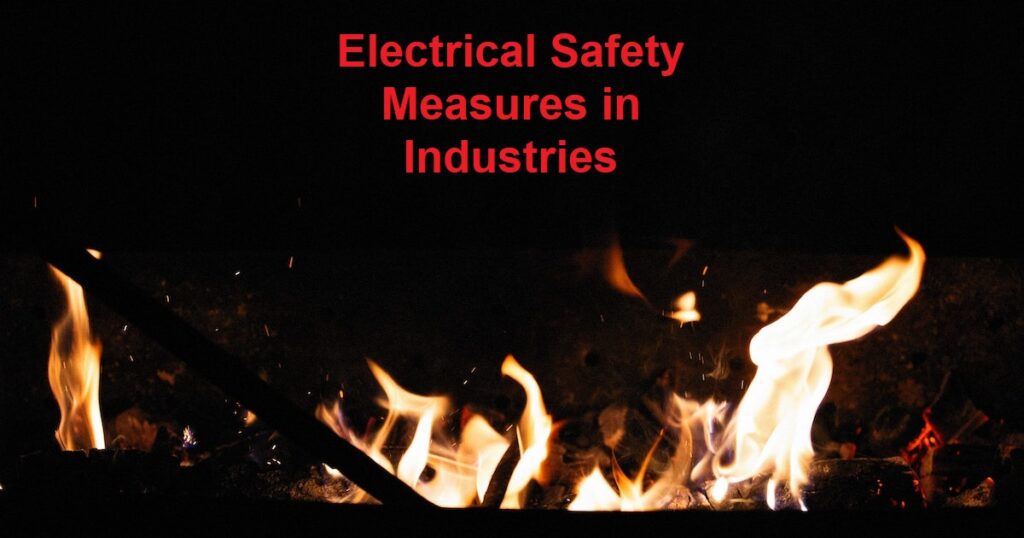Electrical safety is of utmost importance in industries as it helps in preventing accidents and fatalities that may result from electrical hazards. Electrical safety refers to the practices and guidelines that are put in place to ensure the safety of individuals working with or around electrical equipment, installations, and systems. Electrical hazards are among the most common causes of accidents in industries, and therefore, it is essential to ensure that proper electrical safety measures are put in place to prevent such accidents.
Importance of Electrical Safety in Industries
- Prevention of Electrical Accidents
- Compliance with Safety Regulations
- Protection of Property
- Reduction of Downtime
Prevention of Electrical Accidents
One of the most crucial reasons why electrical safety is important in industries is to prevent accidents that may result from electrical hazards. Accidents such as electrical shock, electrocution, and electrical burns can cause severe injuries and fatalities. Proper electrical safety measures such as training, regular inspection, and maintenance of electrical equipment, installations, and systems can prevent such accidents.
Compliance with Safety Regulations
Compliance with safety regulations is another reason why electrical safety is essential in industries. Most countries have strict regulations that require industries to comply with specific safety standards. Failure to comply with these regulations can lead to fines, penalties, and even closure of the facility. Therefore, ensuring that proper electrical safety measures are put in place can help industries comply with these regulations.
Protection of Property
Electrical hazards can also cause damage to property such as buildings, machinery, and equipment. Electrical faults, such as short circuits and electrical fires, can lead to extensive damage to property. Proper electrical safety measures such as regular maintenance and inspection can help prevent such damages.
Reduction of Downtime
Electrical accidents and hazards can also cause downtime in industries. Downtime can result in loss of revenue and productivity. Proper electrical safety measures such as regular maintenance and inspection can help prevent downtime resulting from electrical accidents and hazards.
Common Electrical Hazards in Industries
- Electrical Shock
- Electrocution
- Electrical Burns
- Electrical Fires
Electrical Shock
Electrical shock is one of the most common electrical hazards in industries. It occurs when an individual comes into contact with an electrical current. Electrical shock can cause severe injuries such as burns, muscle contractions, and even death.
Electrocution
Electrocution is a more severe form of electrical shock that can result in death. It occurs when an electrical current passes through the body, leading to cardiac arrest.
Electrical Burns
Electrical burns are also common in industries. They occur when an individual comes into contact with an electrical current, leading to burns on the skin. Electrical burns can range from minor to severe, depending on the extent of the contact with the electrical current.
Electrical Fires
Electrical fires are also a common electrical hazard in industries. They occur when electrical faults such as short circuits or overloading result in electrical arcing, leading to fires.

Electrical Safety Measures in Industries
- Regular Inspection and Maintenance
- Electrical Safety Training
- Use of Personal Protective Equipment (PPE)
- Ground Fault Circuit Interrupters (GFCI)
Regular Inspection and Maintenance
Regular inspection and maintenance of electrical equipment, installations, and systems are essential in preventing electrical hazards in industries. Inspection and maintenance should be carried out by qualified professionals to ensure that all electrical equipment and systems are functioning correctly.
Electrical Safety Training
Electrical safety training is essential for all individuals working with or around electrical equipment, installations, and systems. Training should cover the proper use of electrical equipment, identification of electrical hazards, and proper response to electrical accidents.
Use of Personal Protective Equipment (PPE)
The use of personal protective equipment such as aprons, gloves, and safety glasses is also essential in preventing electrical accidents. PPE helps to protect individuals from electrical shock, burns, and other electrical hazards.
Ground Fault Circuit Interrupters (GFCI)
Ground Fault Circuit Interrupters (GFCI) are devices that can help prevent electrical shock by interrupting the flow of electricity when it detects a fault. GFCIs are commonly used in areas where water and electricity may come into contacts, such as in bathrooms and kitchens.

Conclusion
In conclusion, electrical safety is crucial in industries to prevent accidents and fatalities resulting from electrical hazards. Proper electrical safety measures such as regular inspection, maintenance, and training should be put in place to ensure the safety of individuals working with or around electrical equipment, installations, and systems. Failure to comply with safety regulations can lead to severe consequences, including fines, penalties, and closure of the facility. Therefore, it is essential to prioritize electrical safety in industries.
FAQs
- What is the main reason for electrical accidents in industries?
Electrical accidents in industries are mainly caused by electrical hazards such as electrical shock, electrocution, electrical burns, and electrical fires.
- What are the common electrical safety measures in industries?
Common electrical safety measures in industries include regular inspection and maintenance, electrical safety training, use of personal protective equipment, and ground fault circuit interrupters.
- How can electrical safety help reduce downtime in industries?
Proper electrical safety measures such as regular maintenance and inspection can help prevent downtime resulting from electrical accidents and hazards.
- Can compliance with safety regulations help prevent electrical accidents in industries?
Compliance with safety regulations can help ensure that industries put in place proper electrical safety measures, which can help prevent electrical accidents.
- Why is the use of personal protective equipment (PPE) essential in preventing electrical accidents?
The use of PPE such as aprons, gloves, and safety glasses can help protect individuals from electrical hazards such as electrical shock, burns, and other electrical accidents.
